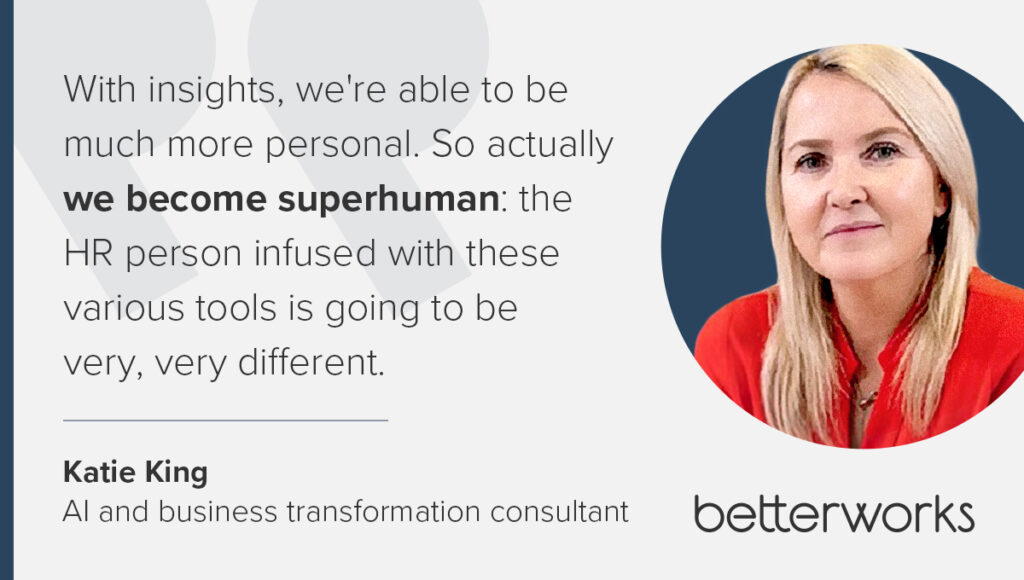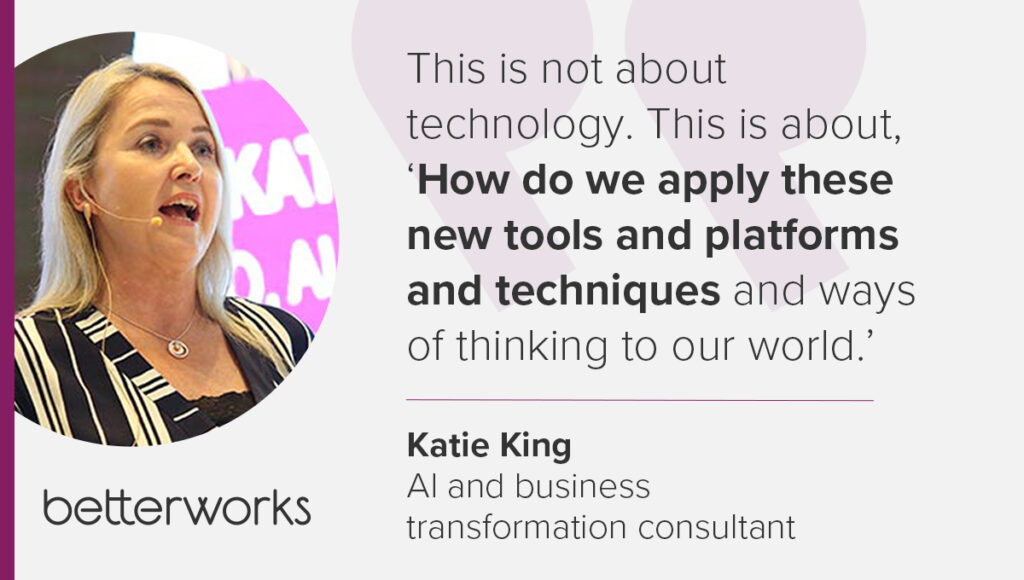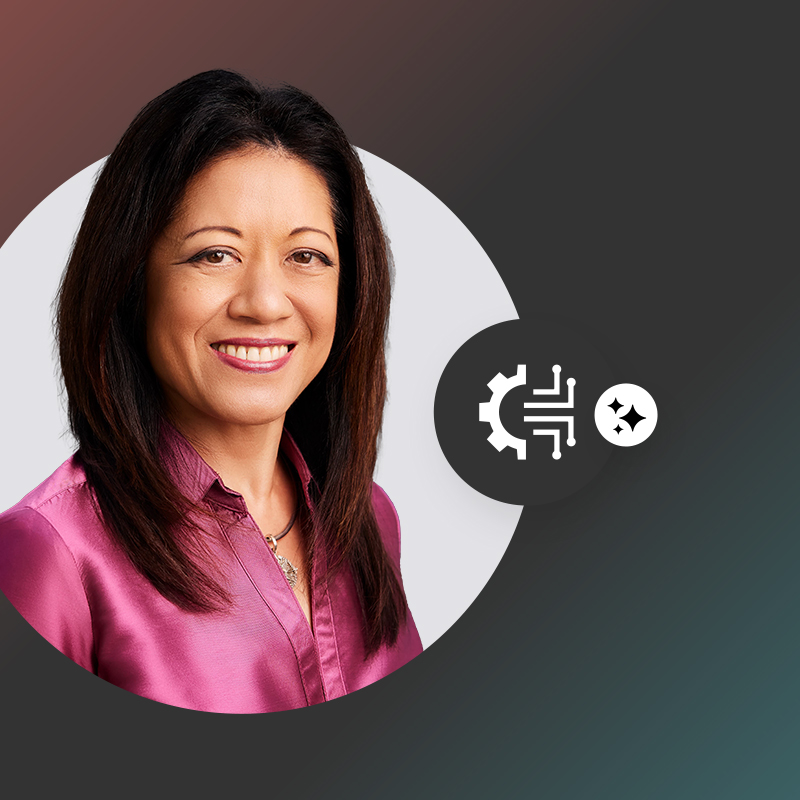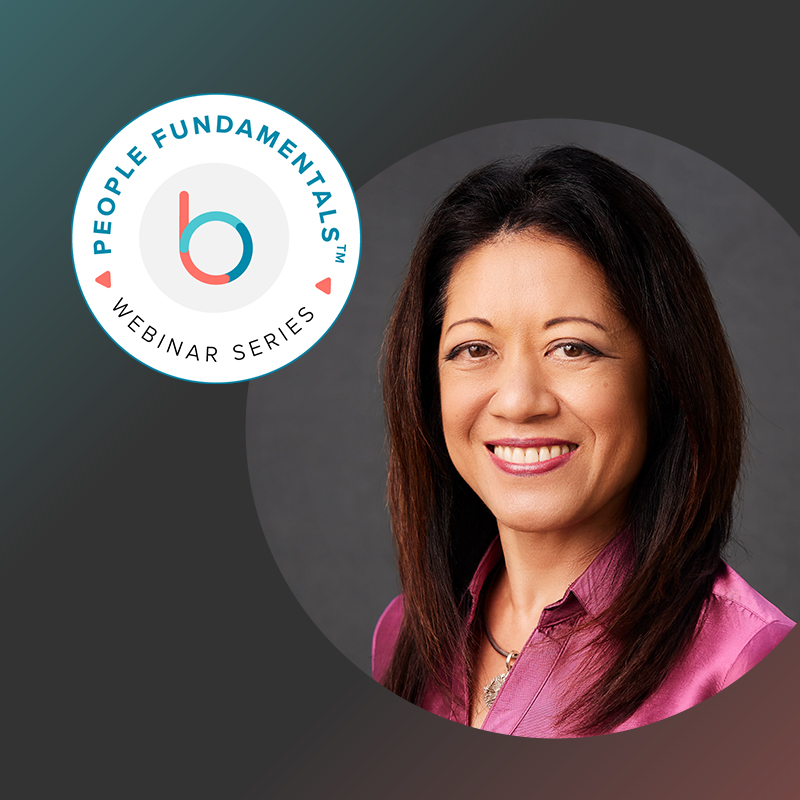AI is fundamentally shifting our approach to HR. As HR professionals, your role isn’t just to keep pace with these changes but to lead them, steering your organizations toward smarter, more strategic HR practices.
That’s why we invited Katie King, a consultant on AI and business transformation, author of two well-respected books on AI, and member of the U.K. task force for the adoption of AI, as a keynote speaker at EmpowerHR Europe. “All the different layers of HR — from learning and development, from corporate culture, the upskilling side, attracting talent — AI can play a major role in that,” Katie said. “And every job function is having to be upskilled and reevaluate its role — and HR can play a pivotal role in that.”
With her deep insights and extensive experience in AI and HR, Katie wants you to know how the smart, strategic use of AI in HR can help your organization not just succeed but excel in a constantly evolving tech landscape.
Invest in ethical improvement
People still bring a lot of fear and uncertainty to conversations around AI in the workplace, but Katie believes AI has big potential for supporting more ethical HR practices. She challenged the common perception that AI might exacerbate biases within HR processes and highlighted how AI—when properly implemented—can help reduce biases.
Katie asserted that using AI responsibly involves training the technology with diverse data sets. She emphasized the importance of preventing bias in both the training phase and the practical application of AI, ensuring that AI systems are more equitable and inclusive.
Katie cited Unilever as an example of successfully using AI to hire for diversity — an outcome that, she said, is repeatable. “If we use diverse datasets, and we train our data in the right way, and we don’t let bias in the training and in the practice of it, then we are going to have a much more eclectic ability to do that,” she said.
Katie also stressed the significance of privacy and consent when using AI — especially since many of these ethical considerations are the subject of pending regulations. She redefined the role of AI in HR as not just a tool for efficiency but as an ally in the pursuit of fairer and more equitable workplace practices.
Shift from ‘human’ to ‘superhuman’
AI holds great potential for shifting HR from a one-size-fits-all approach to a more tailored, individual-focused strategy. This not only improves the efficiency of HR processes but also significantly enhances the employee and candidate experiences by making them more personalized and responsive to individual needs.
“With insights, we’re able to be much more personal,” Katie said. “So actually we become superhuman: the HR person infused with these various tools is going to be very, very different.” Data-based technology enables you to more effectively address individual concerns and preferences, which can lead to increased employee engagement and satisfaction.
AI can streamline and personalize the recruitment process, for example, improving the match between job roles and candidates and thus enhancing the overall recruitment experience. Through sophisticated algorithms, AI can analyze vast datasets to identify the best matches between job roles and candidates, supporting greater precision in hiring. This leads to a more efficient recruitment process and significantly improves the overall candidate experience, enhancing satisfaction and fit for both the organization and the new hires.

Focus on strategic value, not technicalities
As AI technology becomes more advanced, it simultaneously becomes more user-friendly, lowering the barriers to entry for HR departments. “It doesn’t matter if you’ve written books, if you’ve got degrees in this subject — this space is moving really, really fast,” Katie said. This accessibility allows your HR team to leverage sophisticated AI tools for data analysis, talent acquisition, employee engagement, and more, without the need for deep technical knowledge.
That frees up more time for you to focus on what matters most: not on mastering coding or the intricate technicalities of AI but on understanding how to strategically implement these tools to enhance HR functions. “This is not about technology,” Katie said. “This is about, ‘How do we apply these new tools and platforms and techniques and ways of thinking to our world?’” This democratization of technology allows HR to become more strategic and proactive, making decisions based on data-driven insights rather than intuition alone.

Katie’s vision for AI in HR is transformative. It focuses on turning HR into a strategic, insightful, and proactive entity within the organization. This shift requires reimagining traditional roles and adopting a forward-thinking approach to how HR can significantly contribute to broader business objectives.
Want to learn more? Catch EmpowerHR on demand to hear more perspectives on the changes and challenges facing HR leaders today.
Get more insights from Katie and others


